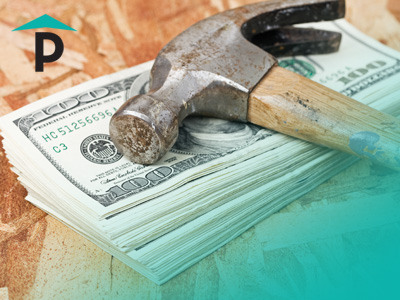When you visualize a construction project of any kind, your priority is to turn paper plans into a viable structure or model as quickly and seamlessly as possible. There are often several parties involved in the conception and completion of any construction project, and the success of the campaign may be dependent on the ability for contractors and subcontractors to work cohesively and to deliver on a promise to fulfill their contractual obligations. In many cases, cities, states, and counties insist upon property owners and developers investing in surety bonds to provide financial protection and assurance. In this case, subdivision bonds are recommended, rather than standard or payment bonds. If you’re looking to fast track your construction project and protect your finances simultaneously, the experts at Pinnacle Surety can help. This guide will provide useful information about subdivision bonds and how they could help you achieve results safely and efficiently.
Subdivision bonds
Subdivision bonds are increasingly commonplace in states across the US. If you’re a property developer or owner or you are a contractor, it’s wise to gain an insight into the value of subdivision bonds and learn about how they could benefit you going forward.
Subdivision bonds are known by several different names, including:

- Plat bond
- Land improvement or improvement bond
- Developer bond
- Completion bond
- Performance bond
The principal aim of a subdivision bond is to guarantee improvement in a specified subdivision of land. When a subdivision bond is taken out, financial responsibility for the completion of the project in question shifts from a public agency or entity to the owner of the property or a developer. Once construction is completed and the land has been improved in line with the terms of the agreement, ownership passes back to the public agency or authority.
Examples of improvement projects that may be covered by subdivision bonds include street upgrades, landscaping, sewage repairs and maintenance, erosion management, water mains improvement, sidewalk maintenance, grading, maintaining and repairing curbs and paving, cleaning gutters and electrical repairs.
What are the benefits of subdivision bonds and how can Pinnacle Surety make a difference?
 Subdivision bonds are a metaphorical safety blanket for agencies. If you have grand plans for a construction project, you want to have guarantees in place that drive the project forward and maximize the chances of achieving the desired outcome on time. Subdivision bonds offer financial assurance and a safety net if the project doesn’t go to plan. Subdivision bonds are a legal requirement in many states, cities, and counties. They help to provide peace of mind that a contractor or developer will carry out improvement work in a professional, timely manner. If the project isn’t completed in compliance with the agreed terms, for example, the completion date is delayed, or the contractor is unable to fulfill the contract, the bond offers protection. The money provided by the bond can be used by the agency to finish the job. In many cases, subdivision bonds cover payments that may be due to laborers, subcontractors, and suppliers, minimizing the risk of agencies being out of pocket.
Subdivision bonds are a metaphorical safety blanket for agencies. If you have grand plans for a construction project, you want to have guarantees in place that drive the project forward and maximize the chances of achieving the desired outcome on time. Subdivision bonds offer financial assurance and a safety net if the project doesn’t go to plan. Subdivision bonds are a legal requirement in many states, cities, and counties. They help to provide peace of mind that a contractor or developer will carry out improvement work in a professional, timely manner. If the project isn’t completed in compliance with the agreed terms, for example, the completion date is delayed, or the contractor is unable to fulfill the contract, the bond offers protection. The money provided by the bond can be used by the agency to finish the job. In many cases, subdivision bonds cover payments that may be due to laborers, subcontractors, and suppliers, minimizing the risk of agencies being out of pocket.
At Pinnacle Surety, we have an in-house team, which is capable of underwriting subdivision bonds in less than 24 hours. We understand the importance of efficiency in the construction industry, and our experienced team is ready and raring to go. We offer the best bonds and rapid turnaround times, and we have extensive experience in working with local and state government agencies to acquire permits. Pinnacle Surety is the surety bond authority of America. Time is of the essence in this business, and if you choose Pinnacle Surety, we will work swiftly to provide you with the financial cover and protection you require.
What does a subdivision bond involve?
 A subdivision bond involves three separate parties: the surety provider, the principle and the obligee. The principle is the developer or contractor that buys the surety bond and the obligee is the state or local government that requires the acquisition of the bond. Once the principle has purchased the bond, the surety provider agrees to cover the cost of improvements if the contractor or developer (the principal) fails to keep their end of the bargain.
A subdivision bond involves three separate parties: the surety provider, the principle and the obligee. The principle is the developer or contractor that buys the surety bond and the obligee is the state or local government that requires the acquisition of the bond. Once the principle has purchased the bond, the surety provider agrees to cover the cost of improvements if the contractor or developer (the principal) fails to keep their end of the bargain.
Government and public agencies are responsible for regulating development and improvement work. To develop or improve a specific area of land, the owner or developer is required to seek a plat, a type of permit, from the agency. In many cases, agencies will insist upon public improvements as part of an agreement to give a project the green light. If improvements are part of the deal, an improvement agreement is drawn up between the agency and either the developer or the property owner. This contract contains information such as the type of improvements and the timeframe in which the developer or contractor will work.
How much does a subdivision bond cost?
The cost of a subdivision bond varies according to the value of the project. The value of the bond is usually calculated based on quotes from engineers.
How can I find out more about Pinnacle Surety subdivision bonds?
Pinnacle Surety is a surety bond agency, which is devoted to providing clients and companies with financial products that promote efficiency and cohesion at the same time as ensuring peace of mind. We focus solely on surety bonds, we offer a personalized service, and we have an experienced in-house team, which produces results rapidly. We are committed to establishing long-term ties and we know everything there is to know about surety bonds. If you’d like to find out more about subdivision bonds or you have questions or queries about local or state requirements or the benefits of subdivision bonds, don’t hesitate to get in touch by telephone, email or via our online inquiry form. Our expert team will be able to provide tailored advice.
Are you hoping to fast-track a construction project? Are you interested in subdivision bonds? If so, Pinnacle Surety can help. Call us today to discuss your requirements and find out more about how our subdivision bonds could benefit you.


